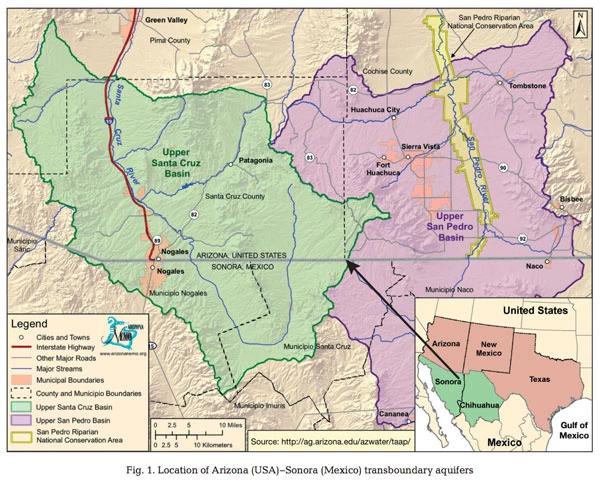
The USA and Mexico have initiated comprehensive assessment of 4 of the 18 aquifers underlying their 3000 km border. Binational management of groundwater is not currently proposed. University and agency researchers plus USA and Mexican federal, state, and local agency staff have collaboratively identified key challenges facing the Santa Cruz River Valley Aquifer located between the states of Arizona and Sonora. The aquifer is subject to recharge variability, which is compounded by climate change, and is experiencing growing urban demand for groundwater. In this paper, we briefly review past, current, and projected pressures on Santa Cruz groundwater. We undertake first-order approximation of the relative magnitude of climate change and human demand drivers on the Santa Cruz water balance. Global circulation model output for emissions scenarios A1B, B1, and A2 present mixed trends, with annual precipitation projected to vary by ±20% over the 21st century. Results of our analysis indicate that urban water use will experience greater percentage change than climate-induced recharge (which remains the largest single component of the water balance). In the Mexican portion of the Santa Cruz, up to half of future total water demand will need to be met from non-aquifer sources. In the absence of water importation and with agricultural water use and rights increasingly appropriated for urban demand, wastewater is increasingly seen as a resource to meet urban demand. We consider decision making on both sides of the border and conclude by identifying short- and longer-term opportunities for further binational collaboration on transboundary aquifer assessment.

